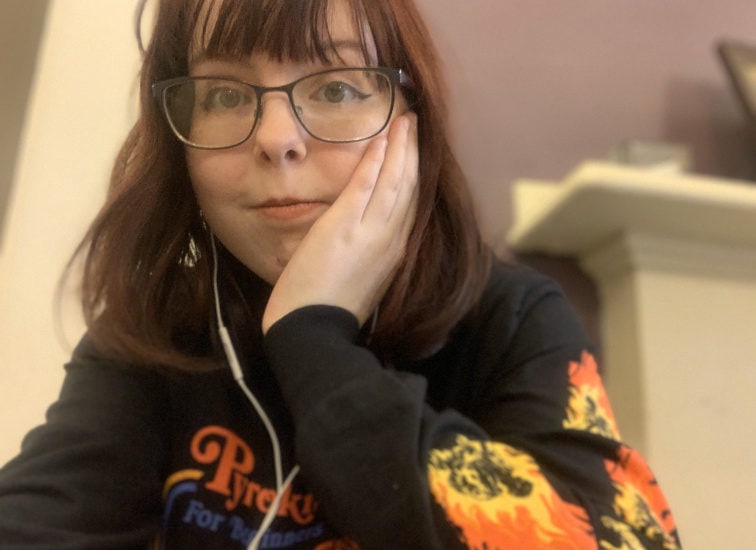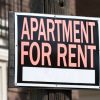
“You don’t look autistic.”
There it is. Again. I realize I should have started taking a tally starting in June of 2018, when I was diagnosed with Autism Spectrum Disorder in a little private office in Antigonish.
If I had a dollar for every time someone said this, or any other micro aggression in the form of a supposedly well meaning compliment, to me upon disclosure of my diagnosis and advocacy work, I could afford to buy the so-called “Autism Privilege” people seem to believe exists. The general public enjoys telling me how they would love free housing and university, that they’ll take any excuse to get out of that one baby shower their friend is having, or that I’m lucky to have an excuse to tell people what I really think of them.
To try to understand the concept of supposed Autism Privilege, we must first delve into what autism is. Autism is a neuro-developmental difference that affects the way we communicate and socially interact; how we process sensory input such as hearing and touch; and other aspects such as the need for routine, and the ability to hyper focus” on our niche interests, often becoming experts in such fields. Autism occurs in roughly 1 in 59 people, based on the 2018 date found by the Center for Disease Control and Prevention. Obligatory disclaimer: Autism isn’t a disease, nor can it be prevented. It is simply a genetic difference, like natural red hair.
Since those basics are out of the way, let’s explore: where does Autism Privilege come in for me? I’m white, which is of course a large privilege. I’m 25 years old right now, I’m still classified as a youth. That’s a start, right? Oh, and I’m a nonbinary femme, one of the many people who are both transgender and autistic, living in Port Hawkesbury, Cape Breton Island. Wait, these are factors outside of being autistic, and some were actually a hindrance to seeking a diagnosis. Time to back up.
Many people are familiar with the concept of Savant Syndrome, in which people with developmental disabilities have abilities that are allegedly supposed to be out of our range. Along with being autistic, I have something called Hyperlexia, which is the advanced ability of written communication and reading skills, and a strong fascination toward vocabulary and visual information. Yes, as a spoken word poet and general self-proclaimed nerd, this has proven extremely helpful for me. However, it also means I have difficulty processing verbal and auditory information, and I tend to fixate on superficial details rather than the big picture.
I grew up undiagnosed, which translates to being diagnosed as a bullying target because without a doctor’s note or a word to express my experience, I was simply weird. We all know children can pick out the odd duck, but it’s even harder on a child who has strong intrapersonal knowledge or self awareness when adults fail to acknowledge or outright brush off the concerns of a gifted kid. It’s easier to say a girl is antisocial or to tell her she’s not trying hard enough in gym class than it is to seek a solution such as a diagnosis. The reality is I was one of the approximately 40% of autistic children who had a co-occurring anxiety disorder, particularly heightened anxiety. That’s never left me, nor many other autistic adults; the 2 in 5 statistic still rings true after age 18. Autism privilege is children being told they are crybabies when they are hurting.
Like many people assigned female at birth, I didn’t get my diagnosis until I experienced a mental health crisis, multiple in my case. My adolescence was plagued with the approximate five month wait for non-intervention based mental health treatment… Which did nothing. I was told I simply had a hormonal imbalance. In the adult mental health system, my queer identity was medicalized (despite both gender identity and sexuality no longer being classified as symptoms or disorders), and I was told my issue was that I couldn’t figure out how to cope with stress and everyday life. Treatment was cognitive behavioural therapy, prescription was the instruction to hug myself and rhythmically tap on my arms whenever I felt suicidal.
Misdiagnosis and under-diagnosis is rife for women on the spectrum. I did not receive my proper diagnosis until my mum pushed me to see a specialist for developmental disorders, seeing “female ADHD” traits in me upon watching David Suzuki’s The Nature of Things. Autism privilege is the modern equivalent of telling Victorian women their suffering is just hysteria..
While a proper diagnosis and realization that one is not broken is of course a life changer, it does not inherently change one’s life. At 25 years old, I am in the majority of autistic people who have not yet gone into post secondary education, as only 1 in 3 of us do. Although I am working toward the goal of taking accounting, I only have a 20-39% likelihood of actually graduating university a first time, let alone the follow up required for my degree. The Canadian government only provides $2000 a year directly toward student loans for disabled students, with up to $8000 for accessibility supports that we would otherwise need to pay out of pocket as our expenses are naturally higher than abled individuals. Societal barriers facing autistic individuals striving towards academia only further our somber reality that we as disabled Nova Scotians have an average yearly income of $8565, compared to the national disabled average of $10 335. If I could not make it on my own, I would likely be out of luck, as Autism Ontario discovered that an IQ of 70 is the average cap for being eligible for any form of support as an autistic adult. Poverty and early death go hand in hand, and I am only expected to live to age 58.
Autism privilege is a lifespan of 36-58, compared to the average of 70 years old. To think I spent nearly 24 years without access to my full potential, and spending my current time trying to convince others that we deserve a decent life and autonomy. Maybe someone will listen if someone makes a bursary in my eventual memory. I pray it doesn’t have to come to that.
We don’t suffer from autism.
We suffer from stigma.
Taylor Linloff is a nonbinary femme in their mid-20s. After being diagnosed with Autism Spectrum Disorder in 2018, they became an advocate to bring representation for rural and queer-identifying autistics. They hope to soon attend Dalhousie University to become an accountant, and document their experiences in academia in a short film documentary.
With a special thanks to our generous donors who make publication of the Nova Scotia Advocate possible.
Subscribe to the Nova Scotia Advocate weekly digest and never miss an article again. It’s free!




WOW, WOW, WOW. What an excellent article, succinct, logical, but not moralizing. Would love to read what you have to say on other topics, Taylor.
Hello Wendy!
I’m glad you enjoyed the piece. Writing has been a passion for a very long time, and I was lucky to find my niche (or calling), so I really appreciate the feedback.
I hope to continue writing, I do spoken word poetry as well, and to submit more of my words to the Nova Scotia Advocate closer to April for Autism Awareness Month.
Well and very helpfully expressed.( At eighty, with MCS and COPD, I so much welcome opportunities like this sharing to help me understand more.) Thank you Taylor.
Hello Byron!
I’m so happy you continue to learn about different experiences and perspectives. I would say you have a lot of experiences and stories to share as well, they’d be very interesting.
Hi Taylor, that write up was amazing, i truly enjoyed reading about your struggles in life, especially in your early life in school, my son came out as gay when he was 15, back then he thought it was the proper time to do it , but it was not , he suffered at the hands of “friends ” so called friends i say, you are a true inspiration , and so many people could learn so much from you, i knew your Dad a long time , he would be so proud of you , he often talked of you and your sister and how proud he was , take care Taylor👍😁⚘